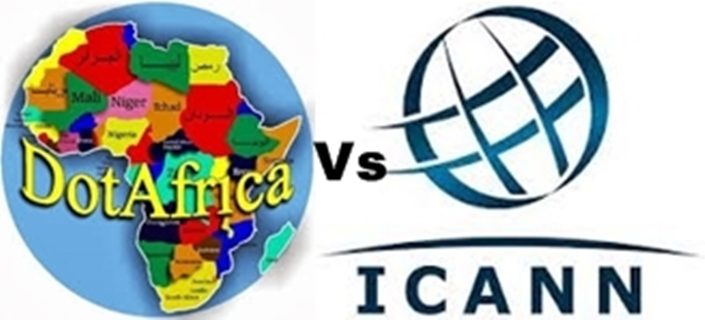
DCA Trust Response to John Jeffrey’s ICANN Legal Blog Posting
August 17, 2015
The attention of DotConnectAfrica Trust (DCA Trust) has been drawn to a recent blog posting by John Jeffrey, the ICANN General Counsel and Company Secretary, who wrote to clarify what he termed as “misinformation and erroneous reporting that have framed parts of the discussion” regarding the recent DCA vs. ICANN IRP Final Declaration.
As we can’t see a way of making comments on his blog, DCA Trust as a directly affected party, will respond to the issues Mr. Jeffrey has advanced on behalf of ICANN, in order of how he has addressed them. A copy of our response has been communicated to ICANN.
1. Issue of Redaction of Parts of Final IRP Declaration
DCA notes that ICANN has now changed its procedures on how it will post future IRP decisions. Mr. Jeffrey gives a long list of tests on how to decide what will be published, which are fairly obvious and adds length to his argument taking us away from the central point that the initial publication of the IRP decision was misleading. ICANN tacitly acknowledges this by deciding to change the procedures.
A point on his reference to legal representation is that DCA engaged ICANN directly prior to the IRP (e.g. CEP) and we have simply reverted to that mode post IRP. There was no material delay in responding to ICANN as Mr. Jeffery alluded to, and in fact as we transitioned between modes our IRP legal team did provide various and immediate responses to ICANN on the redaction, and clearly stating DCA’s position. That is, any redactions by ICANN would have been done without DCA Trust’s consent — in other words, DCA Trust reserved the right not to accept the redactions that had been done unilaterally by ICANN. We can understand ICANN’s interpretation however as one that DCA Trust did not have legal representation and ICANN’s apparent legal intimidation of DCA Trust since the IRP process was concluded — e.g. this blog by ICANN’s senior legal counsel.
Nonetheless, DCA Trust remains convinced that the entire IRP outcome should remain transparent, since no third-parties would be harmed by doing so. ICANN did not allow a negotiated process to govern the redaction of the IRP Final Declaration between DCA and ICANN, but decided on its own to perform deep redactions that amounted to expurgation. Excessive redaction of the document as was done by ICANN, which made the IRP Declaration rather opaque and not transparent.
It should also be noted that the haste in publishing the IRP results is in stark contrast with the speed with which ICANN posts all other communications from DCA — specifically our responses to the ICANN board. Somehow our competitors and the African Union were able to get their correspondence posted, but DCA’s communication took weeks, and with DCA’s urging at that.
2. ICANN Staff Assistance to ZACR on .Africa New gTLD Application
John Jeffrey states:
“Some have viewed the redactions as support for an allegation DCA made during the IRP proceedings that ICANN staff had not treated DCA fairly. Specifically, it has been suggested that staff improperly assisted the African Union Commission (AUC) by helping to ensure that its letter of support for another applicant satisfied the necessary criteria. The DCA IRP Declaration does not address this allegation, but since the allegation is being discussed, it warrants some clarification.”
It is not correct to dismiss DCA’s allegation by confusing what is an allegation and what was effectively concluded by the IRP proceedings. There is little doubt that DCA was treated unfairly otherwise it would not have prevailed at the IRP. DCA repeatedly explained to ICANN where the board had failed but was forced to go to an IRP — that alone was unfair.
Notwithstanding, coming back to the issue of ICANN’s evident assistance to ZACR, it is now public knowledge that all the letters submitted by ZACR to the new gTLD application did not meet the established criteria as defined by the guidebook. ZACR had simply appropriated the letters for itself; including the many letters that had been written by African country governments in support of the AUC’s position on .Africa — which is for the .Africa new gTLD name to be reserved as a special legislative protection for the African Union. If ZACR’s putative letters had indeed met the criteria, then there would have been no need for ICANN evaluation staff to send clarifying questions to ZACR stating that the letter they submitted did not meet the Applicant Guidebook (AGB) criteria; and the issue of ICANN staff helping to ‘ghost-write’ a more suitable ‘passing’ letter of endorsement for the AUC for the assistance of ZACR’s application would not have arisen; and this assertion is supported by the records.
The specific allegation made by someone is one which John Jeffrey alludes to in his second sentence — “staff improperly assisted one applicant”. Because it was not specifically denied, the blog posting clearly infers that staff did offer assistance but suggests that this was not improper.
DCA simply refers to the guide book. The Geographic Name Panel (GNP) procedures are clear — the responsibility is on the applicant to fix any endorsement issues. Obviously a form letter template provided as part of the guidebook is quite acceptable because all applicants can refer to it. Despite suggesting that ICANN helped every applicant, it is still wrong because it is contrary to the guidebook.
The applicant guidebook, which is the one to be followed, clearly states responsibility lies with the applicant. ICANN has no part in the process other than acting as a mailbox between the GNP and the parties that may issue an endorsement; otherwise the “independent” process is compromised.
Jeffrey states:
“We have provided assistance to all applicants regarding their applications to the maximum extent possible.”
That is, all other applicants apart from DCA Trust which ICANN discriminated against according to the records of the IRP findings. Additionally, “to the maximum extent possible” clearly implies that there is some practical limit to the assistance that ICANN can give and hence cannot guarantee it would be the same to all applicants, which is again discriminatory. Furthermore, this ‘assistance’ which ICANN claims to have given to applicants was most irregular and clearly against the new gTLD applicant Guidebook provisions. This offer of assistance post-TLD Application System (TAS) official closing is not spelt out in any procedure we can find in the AGB and it would seem strange that it would be given if we benchmark AGB against commonly accepted International tendering processes.
We are very surprised that ICANN continues to downplay these serious irregularities that led it to unfairly award the .Africa new gTLD to ZACR simply because ICANN does not want to admit any wrong-doing on its part.
3. Impact on .AFRICA Delegation
With the risk of again accusing ICANN of treating DCA unfairly, the current status of delegation is legally problematic. How could ICANN evaluate DCA’s application at the GNP while ICANN has already signed a new gTLD Registry agreement for the same domain name string that DCA’s application would be evaluated for? i.e. the Africa new gTLD name string that is ‘technically unavailable’ for ICANN to delegate as of this writing. What would be the purpose of such a ‘resumed evaluation processes for DCA Trust’s application’ which the ICANN Board resolved to do? Surely this anomaly has to be corrected immediately.
No bidder for any Invitation for Bids (IFB) process would agree to participate in an open/competitive bid (or tender) opportunity which the goods or services that are being tendered have already been awarded and contracted out to a particular supplier. Even as a lawyer, something should tell Mr. Jeffrey that this situation is not right and needs to be corrected immediately.
Therefore, the initial step for ICANN to take would be to revoke the current new gTLD Registry Services Agreement that ICANN has already signed with ZACR, so that the string can then be free for evaluation and possible delegation to DCA Trust — based on the outcome of any fair and non-discriminatory re-evaluation process.
Conclusion
Rather than clarify matters Mr. Jeffrey has created more doubt about how ICANN actually conducted the new gTLD application process in general and with respect to .Africa in particular. The rules to be followed were clearly stated in the guidebook. The fact that it is named a “guidebook” doesn’t alter the fact that it contained prescriptive and definitive rules to be followed. The procedures do not indicate that ICANN was provided any assistance to an applicant in any manner whatsoever. The responsibility is the applicants.
DCA Trust won the IRP against ICANN, and this was not by luck. It was a procedure-based process that was painstakingly determined by a Panel of International Jurists. Even before the Panel declared unanimously that ICANN broke its Bylaws and Articles of Incorporation, DCA Trust had clearly articulated a similar position of the IRP panel and informed Mr. John Jeffrey nearly two (2) years ago.
Therefore, we think that ICANN continues to violate and trample upon DCA Trust’s rights as a participant under the new gTLD Program.
The IRP was forced upon DCA Trust by ICANN. DCA Trust expects ICANN to also solve the problem that it has created. Thus, ICANN should demonstrate statesman-like responsibility and accountability by immediately revoking its new gTLD Registry Agreement that it has signed with ZACR.
Finally, DCA Trust would like to reiterate what it stated in its official post IRP communication to ICANN: that a framework should be set up to mutually bridge the positions of the parties following the recent IRP Final Decision. We had specifically noted that: “A Joint Cooperative Framework should be immediately established between DCA Trust and ICANN to enable us reach common ground on .Africa going forward, and resolve differences if any.”
DCA Trust remains open to any equitable and fair process that would protect its rights.
 Skip to content
Skip to content







Recent Comments